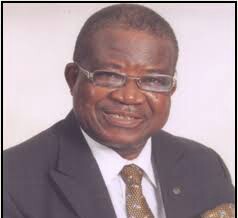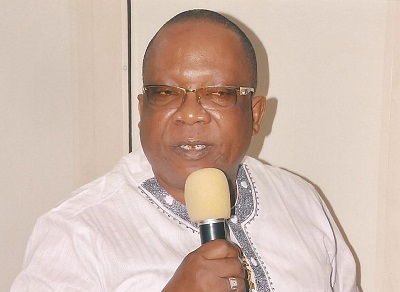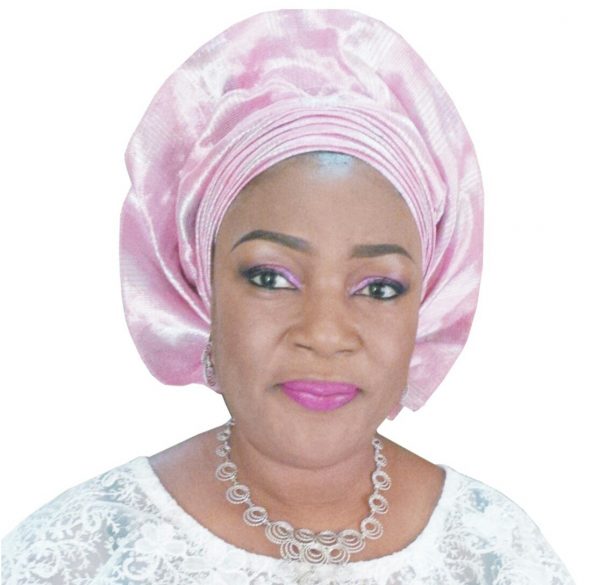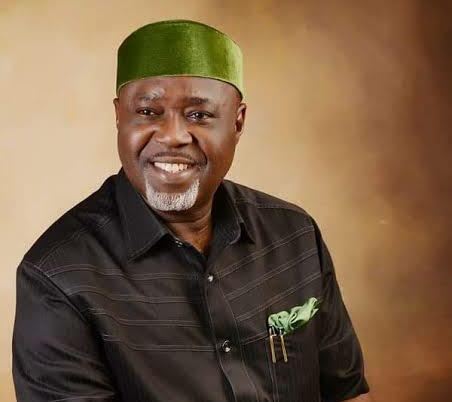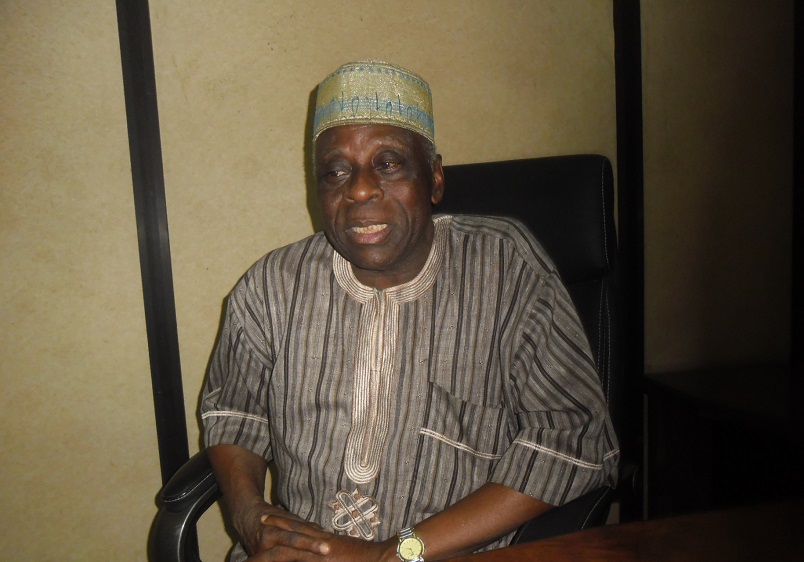AMANO, Effedua, Master Mariners In A Triangular Quest For Professional Brilliance At MAN
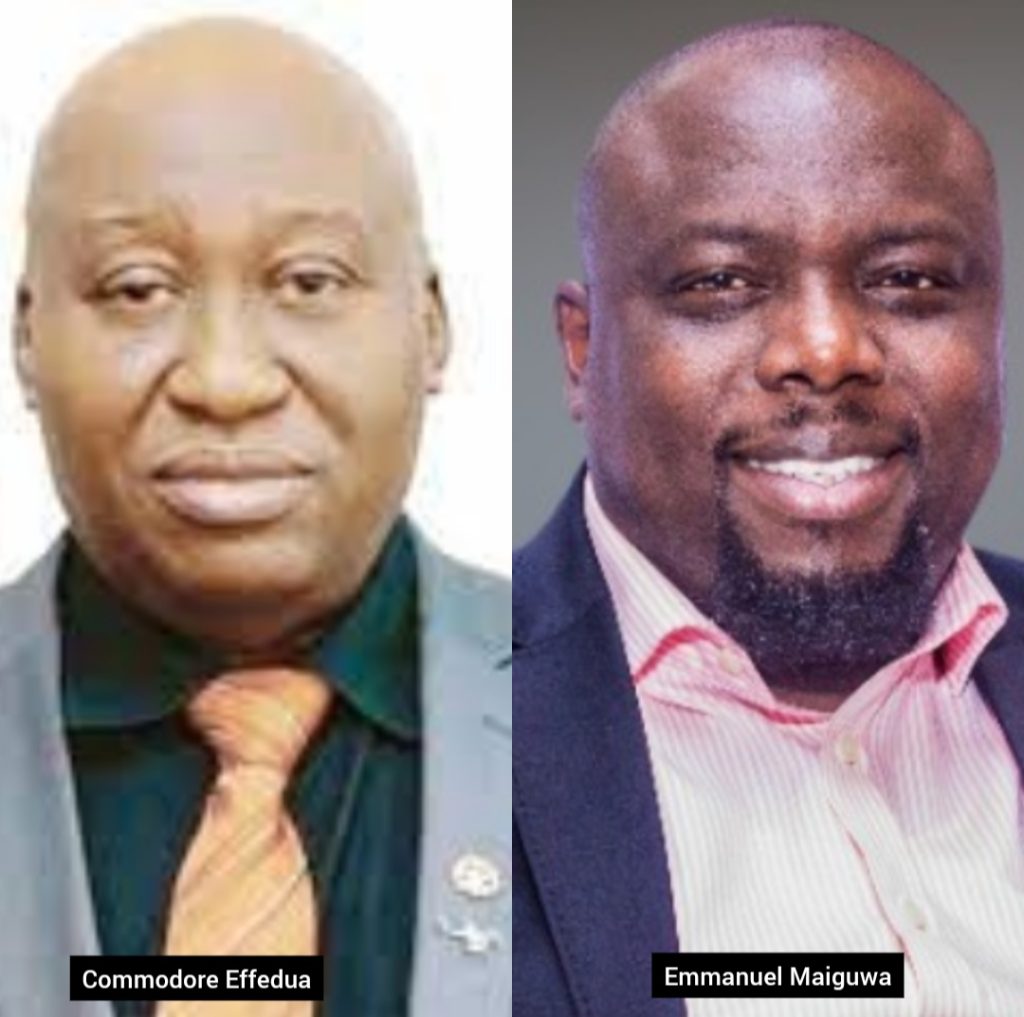
The recent media briefing by the Alumni of Maritime Academy of Nigeria, Oron (AMANO) brought to the fore once again two challenging situations in the life of seafarers, cadets and their trainings as well as availability of vessels for training.
The two hydra-headed issues are the issuance of Certificate of Competence (COC) to seafarers and the problem of attracting quality professionals as lecturers and instructors to impart knowledge in students.
This may have been the reason for the abysmal performances of cadets in subsequent examinations expected to earn them the CoC as seafarers.
It is therefore not out of place that AMANO emerged to help nip the cancer in the bud as they called for intervention fund to boost the engagement of more professionals in the training of cadets at the Academy while raising some concerns in the maritime industry.
Surprisingly, this seems to have pitched the old students under the umbrella of AMANO against the Rector of MAN, Oron, Commodore Duja Effedua(rtd) who is vehemently as always opposed to the position that the Academy lacks professional lecturers and instructors to equip the cadets. Recall that he had taken on the Nigerian Association of Master Mariners in 2019 over claims that the Academy lacks the right professionals for teaching. However, the question remains: Why is the Rector this protective or living in self-denial?
AMANO is the congregation of graduates of the prestigious Maritime Academy of Nigeria, Oron, through harnessing its wealth to impact and deliver excellence to the industry through capacity building, advocacy, and supporting policies and programmers of government in the industry.
According to AMANO,“ In line with our goals, we consider this timely to engage with the public on issues affecting our industry to stimulate purposeful discussions at various levels and subsectors to improve the quality of deliberations and outcomes for effective policies and actions.”
Speaking at a media briefing, recently, the President of AMANO, Emmanuel Maiguwa said: “We have recognized that despite the remarkable transformation achieved at the Maritime Academy in terms of infrastructure and training equipment, the Academy is struggling to attract the needed professionals to meet its obligations.
According to him, “One of the major challenges is the condition of civil service vis-à-vis the budget available for contract employment, which is insufficient to attract experienced mariners who are required to provide tutorship to the cadets.
“AMANO wishes to encourage the Minister to consider special intervention funding that will enable the academy to adequately match professional mariners’ compensation to that of the private sector to attract qualified professionals into the system.
“We have observed that the country does not have records of its citizens who have acquired Class 1 licenses under the Nigerian or other foreign administrations. The implication is that the country does not know its capacity and gap. Understanding our manpower capacity and gap in specialized areas is critical to developing the Marine and Blue Economy.
“We call on the Ministry to work with NIMASA and ensure that a quality database backed by law is developed to serve as a source of policy guidance and public information tools that will aid the growth of the maritime industry.
“We refer to the laudable steps taken by the leadership of the Nigerian Maritime Administration and Safety Agency (NIMASA) around 2013 to bring in at least 60 professional mariners, including class 1 captains.
He regretted, however that subsequent administrations still need to sustain this initiative to ensure succession plans. Those engaged in 2013 have been in a proper placement debate and conflict with the agency, significantly affecting their performance and preventing the agency from deriving value from the presence.
“We understand that even though the agency has carried out significant employment since 2014, the employment did not bring marine professionals as required by International Maritime Organisation,IMO to maintain the standard required for the Nigerian Maritime Administration.
AMANO therefore called on the Administration and the Minister to review the gap alongside the last IMO Member State Audit Scheme (IMSAS) through an independent committee that will recommend actionable steps.
“We are equally concerned about a significant decline in “Capacity Vessels” availability to support maritime capacity development. It is important to recognize that seafarers’ training, especially for officers, does not end at the point of acquiring OOW. The officers must be on suitable vessels consistently to achieve a class one certification. This training phase can only be successful when suitable and gainfully employed vessels are available in the industry.
“It is one thing to acquire a vessel but another to ensure her gainful employment. Currently, Only the Oil and Gas Maritime Offshore sector which is domiciled inside the maritime industry is providing some considerable number of platforms. However, this sector alone cannot provide all the key elements needed to develop Nigeria’s potential due to the limitation of vessel size and trading areas it presents.
“We understand that there are political exigencies in leadership composition within government agencies. However, we encourage those fully engaged with practitioners within the industry to understand the challenges and work out a pathway to developing our potential collectively.” He stated.
Calling on other stakeholders within and outside the industry to support this cause of providing a platform for professionally trained to support the nation’s growth and development, AMANO believes that a progressing nation must begin discussing developing the blue economy with sustainably employed ship.
It asserted that, “For a ship to operate sustainably, it must have competent Seafarers, Technical Manager, and highly competent Flag Administration. With these in place, we will attract growth and attain our potential in Blue Economy”
The Rector, however, did not find the AMANO claims funny. While expressing that he should have been contacted before the media parley, he posited that “There was neither exodus nor shortage of lecturers at the Academy. The Academy has over 13 lecturers with Doctorate Degrees. Many other professionals including those who have had experiences in operations within maritime industry are in the Academy too;the Nigerian Navy, Nigerian Ports Authority,etc.
He further averred that,”Highly qualified expatriates are among our teaching staff and we are expecting at least four more expatriates to join the teaching staff before the end of the first quarter. We are also in talks with the Nigerian Association of Master Mariner and their engineering counterparts to seek the support of training activities at the institutions”
He acknowledged that maritime education is expensive as noted by AMANO, adding that the Academy had approached AMANO and other maritime professionals to support training activities at the Academy.
Reacting to media report in 2019 in which the Nigerian Association of Master Mariners queried the competences of the academic personnel at the Academy, Effedua said only qualified teachers are employed for the subjects they are qualified to teach, claiming that the group does not have the information of what is going on in the Academy. The same way he has dismissed the passionate concern of AMANO.
He had then said stated that the Academy had in the last two years(2016) made moves to engage some of the master mariners to join the academic staff of the institution but they refused. However, in 2024 in his reaction to AMANO’s media report, he has perhaps mistakenly continue to reference that as efforts being made to bridge the obvious academic personnel gap in the Academy.
Could it be that the Rector is seeing this streak of genuine concerns by stakeholders to call for timely intervention from the government and private sector as de-marketing?
Should he continue to sacrifice standards, destinies of cadets and future of the country on the altars of self-denial, self-glory and incompetence?
Could it be safe to state that incompetent cadets are churned out sometimes?
The consequences of this has been the successive mass failure associated with the seafarers and Certificate of Competency(CoC).
Nigeria’s Seafarers CoC is issued in compliance to the IMO regulations by NIMASA. The rate of failure in the CoC examination in Nigeria is high when compared with other countries such as Ghana,UK,Egypt, among others.
And over time the seafarers attribute their failure to poorly organized syllabus and scheme of work during the preparatory courses. No wonder it has limitations at the Class 1 and Class 1 levels. Some flag states and shipping companies are not keen on Nigerian CoC licence holders. Ironically, some of these companies operate in Nigerian waters.
Even with the limitations, seafarers have no choice as they face bureaucratic huddles to obtain the CoC.
Following this, AMANO has said that the Director General of NIMASA should divest the authority of signing Certificates to the Head of Maritime Safety at the agency in order to eradicate bureaucracy and delay.
The association has also urged the Director General of NIMASA, Dr Bashir Jamoh to consider the use of electronic signatures, just like it is done by the Nigerian Immigration Service with the issuance of International Passports.
Reacting to questions on the delay of issuance of seafarers certificates, the President of AMANO, Emmanuel Maiguwa said the association has always championed the cause of seafarers whose certificates are delayed unnecessarily.
“Everytime seafarers come to us to complain, the leadership of AMANO has always taken it up with NIMASA, these are administrative issues and we are always giving feedbacks.
“There was one incident where the documents were signed by the DG and kept in two black boxes. When I approached the DG after the cadets complaint, he confirmed that he has since signed the document, so we started looking for it and it was later found in the box and distributed
“In my opinion, the DG of NIMASA should not have any business signing seafarers examination certificates, the head of Maritime safety should be able to do that.
“This would be able to cut a lot of bureaucracies. The head of maritime safety should be doing that with the Authority of the DG because the DG is the accounting officer, but things like Seafarers Certificates and getting it up to DG signature would cause delay.
“Today, on our international passports, I don’t think the Minister of Interior is the one signing it, even the Comptroller General signature is electronic. Our much valued document in Nigeria today is our currency, and I don’t think every time MINT prints money, they start taking it to the CBN Governor to start signing.
“There are innovative ways of getting these things done and I think NIMASA should look into that, so that AMANO would not be running every year to deal with these issues” he advised



